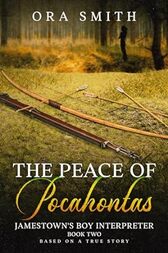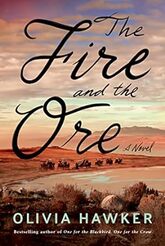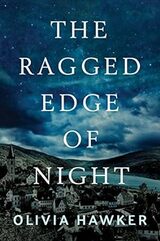
I read White Oak River: A Story of Slavery's Secrets a while back. It’s the story of Caroline Gibson, who leaves a life of privilege on a plantation that uses slave labor to marry an abolitionist preacher, the Reverend John Mattocks. This couple is the author’s great-great-great-grandparents, from coastal North Carolina. When she gives birth to a son with dominant African traits, Caroline must decide if she’ll hold onto her bigotry at the cost of her relationships with both her husband and her son. The novel does an excellent job portraying that the Civil War may have changed laws, it failed to create a change of heart within southern society.


One of them, The Fire and the Ore, tells the story of three women: Tabitha, Jane, and Tamar, who are all wives of Thomas Ricks, one of the early Mormon settlers in Utah Territory. Set in 1856, the novel follows Tamar Loader and her family through a brutal pilgrimage from England to Utah, when she meets the man she is sure is destined to be her husband. She agrees to a polygamous union that is threatened when the US Army invades to stop the Mormon community from engaging in what they consider illegal practices. This is a part of U.S. History that few textbooks mention.

We all have family stories that we think would be good novels. The incidents our forebears went through were often dramatic and harrowing. I know it’s unlikely that I ever turn my family stories into novels: there’d be too many relatives who’d dispute the events or be offended by the portrayals of the people in their family. I’m glad Ora Smith and Olivia Hawker were able to overcome their worries (if they had any!) and produce such interesting windows into the past.
For more on Ora Smith, go to her website at https://orasmith.com/
For more on Olivia Hawker, go to her website at https://www.hawkerbooks.com/

